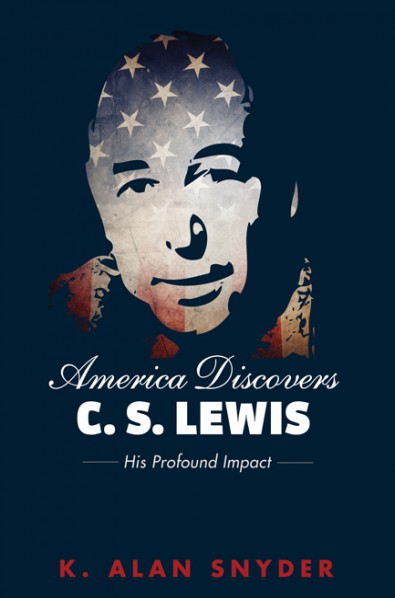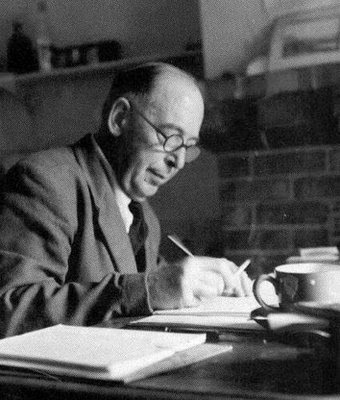Last month, I went to the Marion E. Wade Center at Wheaton College to do research for a proposed book on C. S. Lewis’s views on history. I also took advantage of the visit to hear Dr. Mark Noll give a lecture on Lewis’s interactions and influence on Americans. This was the second of three lectures Dr. Noll is doing on the subject. The third will be this coming March 17, and I will be there again doing the same double duty: lecture and research. Regular readers of what I write know that the topic of Lewis and his American contacts was of such interest to me that I wrote a book about it.
One of the features of the book is a survey I conducted, with the assistance of the Wade Center, of the influence Lewis has had on American Christians today. Those who responded to the survey gave me a lot of interesting information—from the way they were introduced to Lewis’s writings, to which ones have had the greatest impact on their thinking and/or spiritual development, to their opinions about attempts to translate Lewis’s work into films.
With respect to which of Lewis’s writings had the greatest impact, twenty were mentioned by the respondents. That number would have been expanded if I had treated all Narnia and Ransom Trilogy books (Out of the Silent Planet, Perelandra, and That Hideous Strength) separately, but I chose to handle them as a unity, particularly because they were so often mentioned as a group. The “race,” so to speak, to find Lewis’s most popular book was a close one. Mere Christianity came out on top, The Chronicles of Narnia were a close second, and the Ransom Trilogy came next. Whenever a respondent mentioned one of the Narnia books separately, the surprise is that The Last Battle, not The Lion, the Witch, and the Wardrobe, received more votes. For the Ransom Trilogy, Perelandra squeaked by That Hideous Strength by one vote.
Fourth in popularity was The Screwtape Letters, followed by The Great Divorce. Another possibly unexpected result is that Lewis’s novel Till We Have Faces came in sixth. That would have pleased Lewis considerably since, in his lifetime, it was not as well received as he hoped it would be. The Problem of Pain and perhaps Lewis’s most famous sermon, “The Weight of Glory,” took the next two places. After that, there are a number of works clustered together in a tie vote—Miracles, The Abolition of Man, The Four Loves, and A Grief Observed.
What can be said about these results? Apparently, the apologetics presented in Mere Christianity continue to attract people. They are drawn to Lewis’s logical reasoning and his reasonable explanations for the truth of the Christian faith. After that, they appreciate his ability to bring the faith alive in the imagination through his novels—Narnia and the Ransom Trilogy—and also by imaginative approaches to conveying Christian beliefs—The Screwtape Letters and The Great Divorce.
In effect, there is a C. S. Lewis for everyone because he was not limited to one type of writing. I have to say that I love every type he has produced. However, I’ve often said, and will repeat here, that I’m particularly drawn to his way of placing truth within his fiction. The Great Divorce and That Hideous Strength have always stood out to me. With respect to The Great Divorce, it probably is due to the imaginative way he described the outskirts of heaven and illuminated the various obstacles/sins that keep people from coming to salvation. As for That Hideous Strength, my background as a history/government professor unites with the imaginative appeal to make it a favorite.
For those who completed this survey, there is no doubt that C. S. Lewis remains a source of spiritual strength and intellectual rigor for many American Christians.



